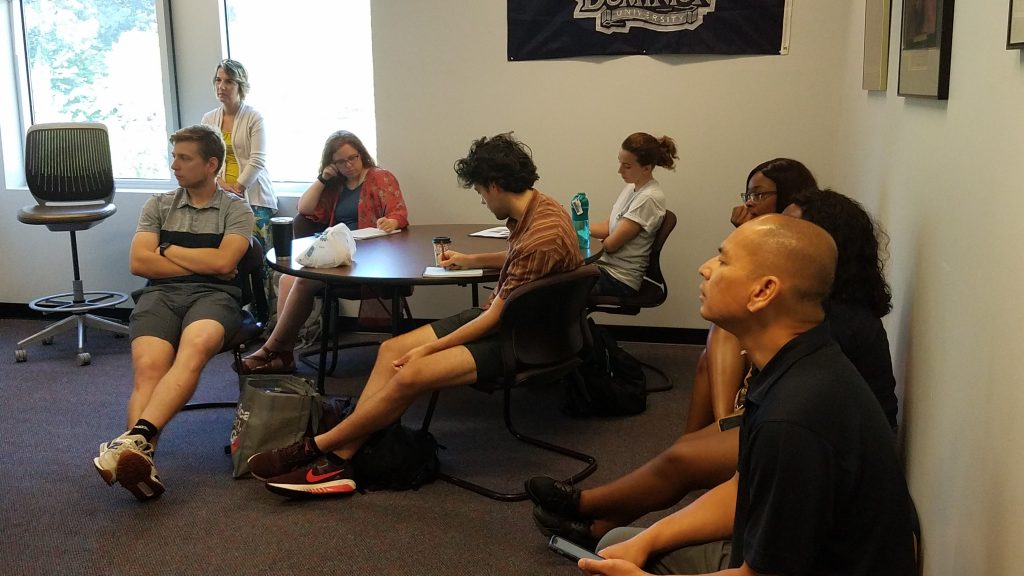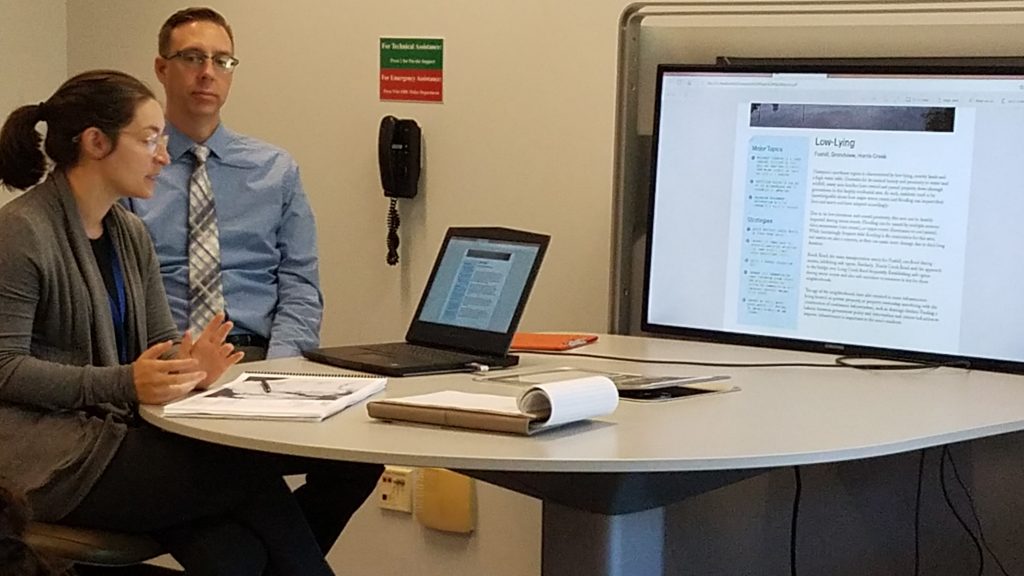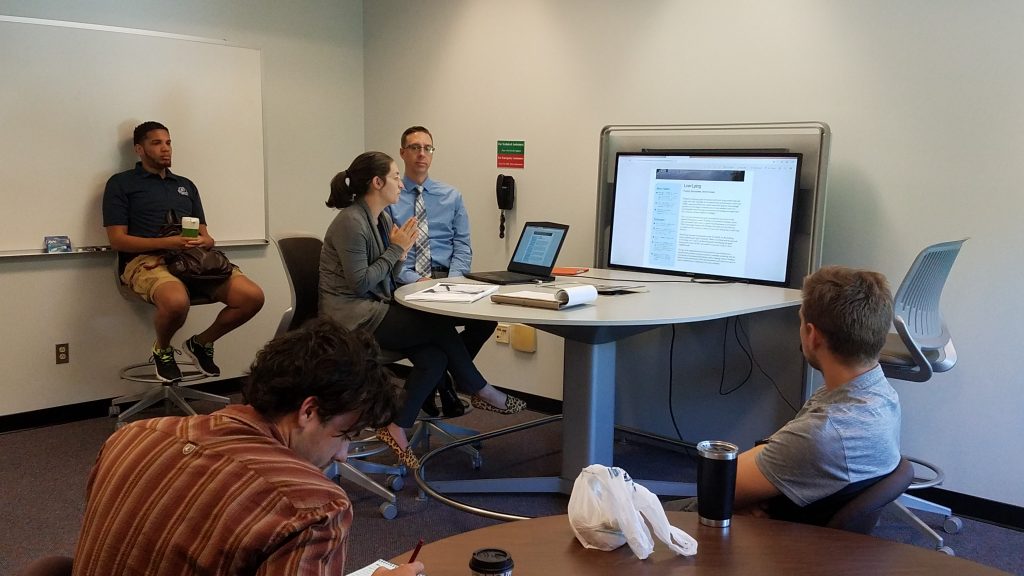Courtney and Madison are part of a collaborative research team with faculty and students from Virginia Tech and ODU. The project involved conducting surveys of residents in Hampton, Virginia about their adaptation to sea level rise and flooding.
Madison and Courtney participated in workshops and virtual team meetings with the team. They heard Dr. AnaMaria Bukvic talk about her previous work in Hampton and participated in a statistics tutorial by Dr. Hongxiao Zhu. Our own Dr. Joshua Behr discussed his research on structural adaptations to homes. Courtney and Madison also met with staff from the City of Hampton, David Imburgia (Environmental and Sustainability Manager) and Lucy Stoll (City Planner), who talked about the different Hampton neighborhoods, provided background about vulnerability to sea level rise and flooding, and shared thoughts about adaptation and resilience.
During their second week at ODU, Courtney and Madison joined the research team in conducting door-to-door survey.
So, how did it go?
Courtney: The first day of surveying was an experience. I was partnered with two students from the Virginia Tech team, Hudson and Allison. We covered at least five different streets and had 13 participants that day. The participants had a few interesting stories to share while they were taking the survey. At one point while we were out surveying, I did feel discouraged because people would look out the window, but not answer the door, while some had “No Soliciting” signs, and we came across a few rude people. Despite the heat, I think I gained a better sense of what it is like to do survey research, which will be beneficial in my future.
What did you learn? What would you do different?
Courtney: Something that I would do differently is give the survey to a small sample of people outside of the research team to get their feedback on the survey. I would do this, because many of the participants who did the survey were confused on some questions, or had comments on how it could have been better. Also, I would make sure all the questions are simply stated, relevant, and nonrepetitive in order to reduce the time it would take to complete the survey. Some of the residents who declined to take the survey did not have the time to stop and participate.



Leave a Reply